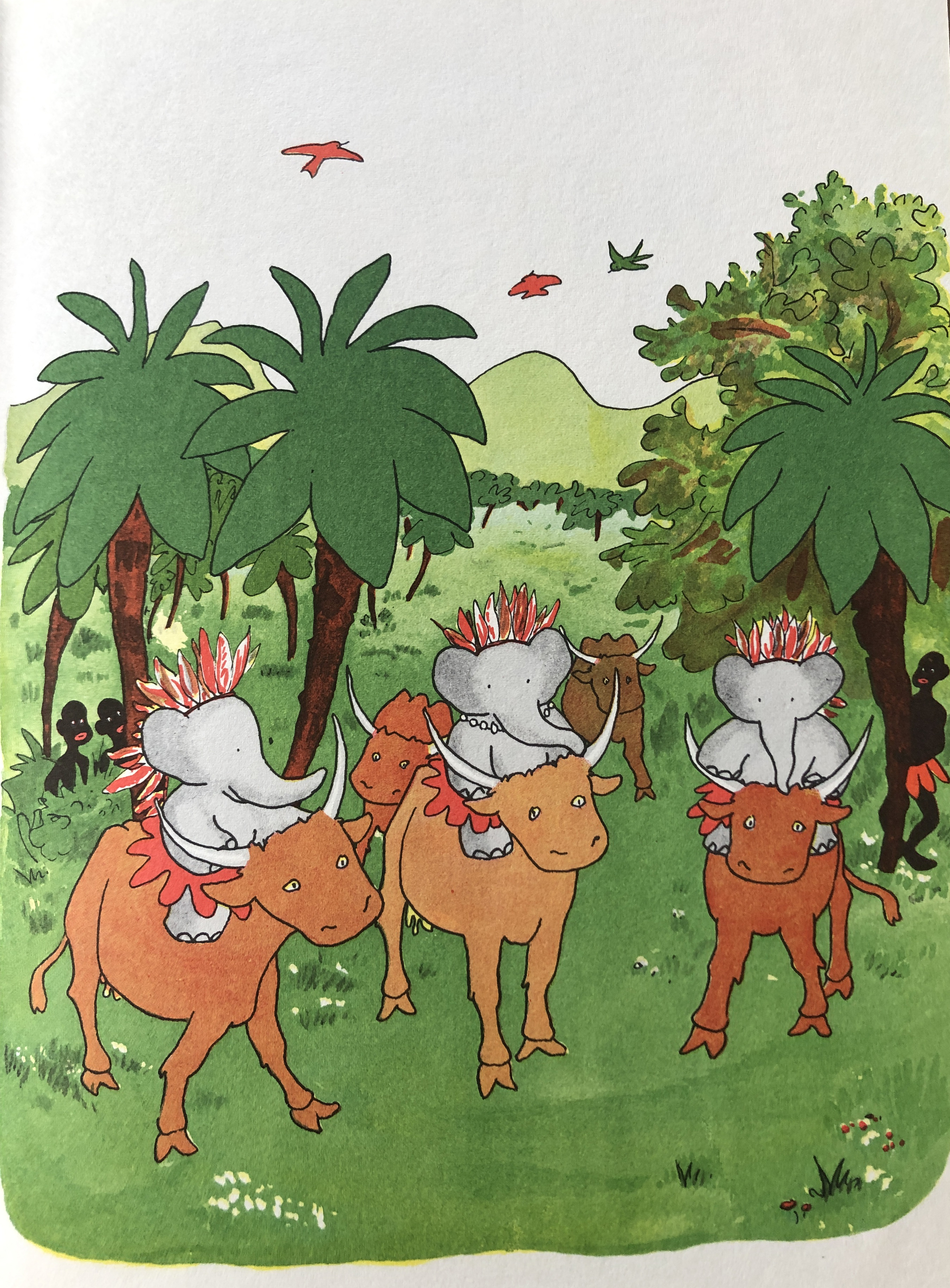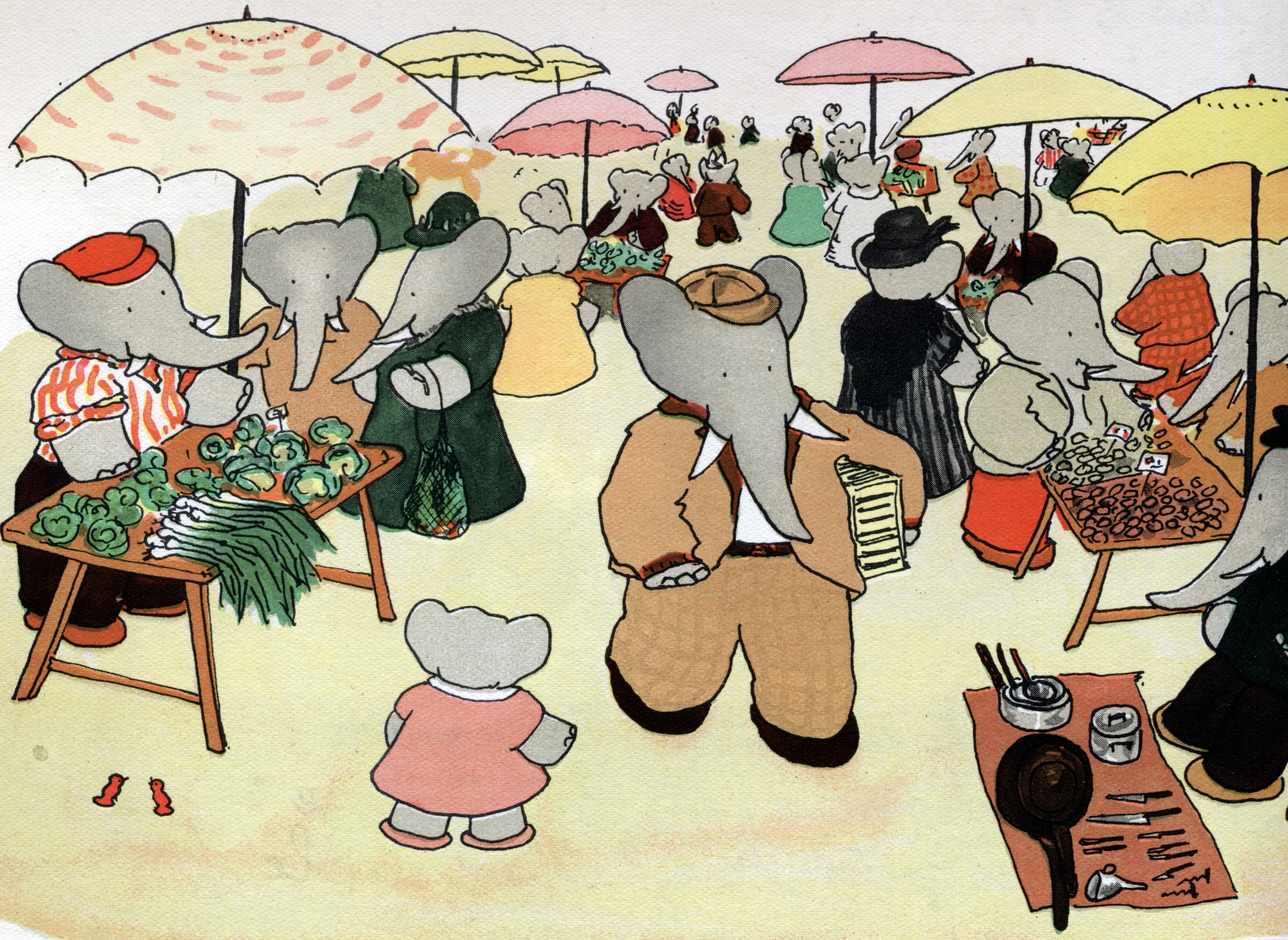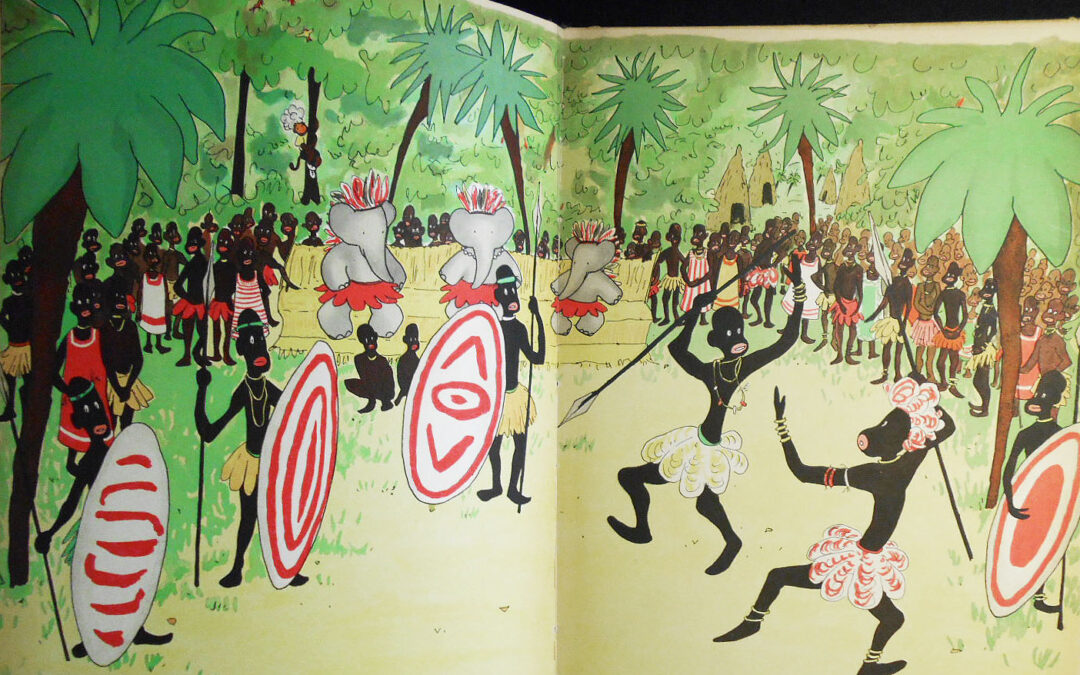Why De Brunhoff allowed this title Babar’s Picnic is a muddle. It’s not about Babar’s picnic! It’s about the young elephants’ picnic and their adventures. Importantly, the story’s portrayal of African Blacks and Native Americans was offensive. De Brunhoff was embarrassed, and he approved withdrawing it from publication in the U.S.
The picnic (without Babar) occurs in the jungle where local African inhabitants appear as stereotypical spear-carrying savages, wild and uncivilized. Alexander, Pom, and Flora, dress in native American Indian-style short skirts and feather headdresses. The youngsters think this is good fun, not realizing their inherent racism. 
The food choices, however, are reasonable and sugar-reduced. Babar, Celeste, the children, Cousin Arthur, and the Old Lady, and Zypher, the monkey dine on ordinary portions: a baguette, a green bottle of soda or water, some red lettuces, a few cookies, bananas, pears, apples, grapes, and sandwiches (contents unknown).
For amusement, Zephir organizes a picnic, and Arthur suggests that the children dress like Indians. Food is packed in a rucksack, including a green bottle (content unknown) and a baguette. But Flore decides to go to the open-air market to buy pastries, and Arthur helps when she cannot find a baker.
Arthur drives Alexandre, Flora, and Pom. Zephir to the country where they find a pleasant valley to have a picnic. Unpacked, Arthur and Zephir play chess under palms trees while the youngsters dress in Indian costumes and pretend to be chiefs. When a black native, always referred to as a savage, sees the three elephants dressed in costume, he runs off crying in surprise and fear, “Houla! Houla.”
The youngsters ride water buffalos while the Blacks, referred to as savages, watch from behind trees. The children wander into the village where the Blacks treat them like royalty.
When Arthur and Zephir wonder what has happened to Alexandre, Flora, and Pom, Zephir follows tracks to the village, which he unexpectedly finds empty. At first, Zephir is concerned but finds the youngsters happily dancing with the Blacks.
Soon, they all go off on a hunt for wild boar. The elephants ride in a wagon knocked over by a charging boar, crushed by Pom when he falls out. The Blacks begin to cook the boar over a fire, but it starts to thunder and rain. Zephir appears and tells the elephants to get into the wagon and leave.
Before the picnickers return home, they have many adventures. At last, they go to be without complaining.
Featured Image: “Let’s drive down into the valley.” Babar’s Picnic)
See Babar’s Picnic [Pique-nique Chez Babar], Translate by Merle Haas. NY: Random House, 1949; Simon Worral. “Laurent de Brunhoff Reveals Shocking Beginning of Beloved Babar Series.” National Geographic (December 23, 20140
*In 1966, De Brunhoff published a non-controversial story Babar Goes on a Picnic.

